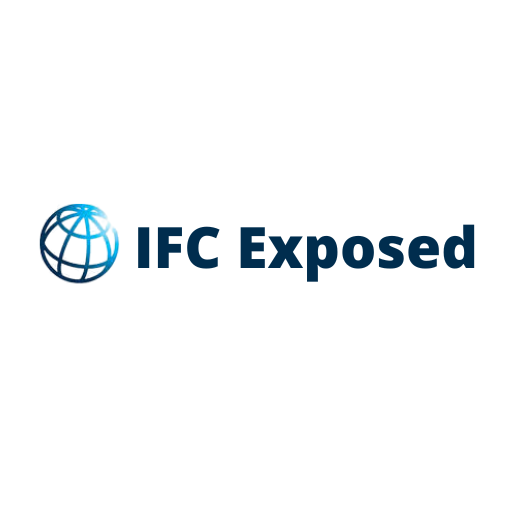
Since the last update of its Performance Standards in 2012, the International Finance Corporation (IFC) has formally recognized the harm caused by reprisals against stakeholders, including communities and civil society, related to its investments. IFC has made some progress in addressing reprisals by putting in place guidance and practices to prevent and respond to these threats. However, to be effective these practices need to be better integrated into the broader landscape of environmental and social policy at the World Bank Group.
Almost universally, multilateral development banks (MDBs), including the IFC, acknowledge the importance of hearing the views of people who could potentially benefit from, or face negative side-effects of, their investments in developing countries. When that feedback is incorporated into project design and implementation, it can promote ownership and prevent harm to local communities and the environment. But, the fear of reprisal can have a chilling effect on affected communities’ and other stakeholders’ willingness or ability to share their views candidly.
In 2018, the IFC affirmed this with the release of a position statement on retaliation against civil society and project stakeholders. Following this statement, the IFC took some steps to operationalize its commitment to zero tolerance against reprisals, including tasking its Stakeholder and Grievance Response (SGR) team with developing internal protocols for responding to reprisals when they were identified in its projects. IFC also developed a good practice note, in collaboration with IDB Invest, on Addressing the Risks of Retaliation Against Project Stakeholders, for its private sector clients, as well as a tip sheet on Addressing Increased Reprisals Risk in the Context of COVID-19. Further, the IFC added a dimension to its Contextual Risk Framework pilot that is meant to consider factors contributing to increased risk of reprisals as part of the due diligence process for its investments, and solicited external input on a Contextual Risk Good Practice Note.
While this progress is significant and welcome, it is not sufficient. The zero tolerance position statement is not well integrated into the IFC’s policy architecture, and does not include transparent guidance on how the institution will seek to identify and actively prevent reprisals. The good practice note and tip sheet developed by the IFC for clients do not focus on how the IFC itself should internalize or incentivize the practices it advises its clients adopt. The Contextual Risk Good Practice Note was never made public and the status of the Contextual Risk Framework pilot is unclear. And the SGR team’s role in responding to reprisals, and the protocols it follows for doing so, are opaque. Finally, in practice, the IFC has not addressed how the fear of reprisal can chill speech, making input less candid and consultations less meaningful.
In this context, there is a need for comprehensive policy and guidance on identifying, preventing, and addressing reprisals and the chilling effect caused by the fear of reprisals in and around the IFC’s portfolio. The just-launched IFC Sustainability Framework review presents an opportunity to close gaps in policy around reprisals and incorporate the work that has been done in the updated Performance Standards. In its updated Sustainability Framework, the IFC should:
- Integrate the Contextual Risk Framework pilot with the Performance Standards. IFC should include the findings of its screening on reprisal risk and other contextual risks in project documentation including the Environmental and Social Review Summary. Where the screening indicates potential risk factors, the IFC should conduct a more comprehensive assessment on reprisal risk. Based on the reprisal risk screening and assessment, Environmental and Social Management Plans should include mitigation measures to avoid or reduce harm.
- Require high quality stakeholder engagement for all projects, drawing lessons from requirements on the WBG’s public sector side, and include measures to protect stakeholders from reprisals. The IFC should direct its clients to adapt stakeholder engagement to the context to foster and protect stakeholders, especially critical and marginalized voices, and to include measures to reduce the chilling effect from reprisals in Stakeholder Engagement Plans. Stakeholder engagement requirements should also be reflected in contractual agreements, and the WBG should begin to measure and report on the quality of stakeholder engagement in IFC projects in its operational dashboard.
- Enshrine the zero tolerance commitment against reprisals in the Sustainability Policy and Performance Standards, and dedicate resources and leverage to implementing this commitment. Peer institutions including the African Development Bank and Interamerican Development Bank have integrated zero tolerance statements into their environmental and social safeguard policies. In order to be meaningful and effective, institutions must link their zero tolerance policies to resources for implementation, as well as to consequences for clients when retaliation occurs, including debarment. The IFC should also include its zero tolerance commitment and consequences for failing to uphold it in its contractual agreements with client companies.
- Make SGR’s role and process for responding to reprisals transparent and predictable. The IFC should establish a clear focal point and protocol for responding to reports of reprisals. If this role is housed within SGR, this should be transparent and communicated to stakeholders in project documentation and during consultation processes.
As it undertakes the review and update of its Sustainability Framework, the IFC should also proactively seek views of human rights defenders and project-affected people in the consultation process. Views of those who have experienced gaps and failings of the current Performance Standards will be invaluable input for developing an updated and strengthened Sustainability Framework, and will help the IFC to address reprisal risk effectively in the new framework. The IFC should consciously reach out to project affected communities, including those who have filed complaints about IFC-financed projects with accountability mechanisms, in the consultation process, and should provide safe spaces for human rights defenders to participate in discussions and share input.
This blog originally appeared on the Bank Information Center website.
